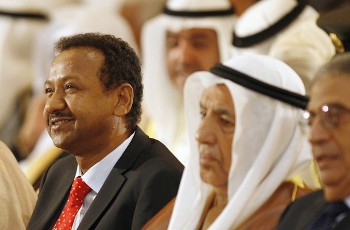Sudan scoffs at ICG report on brewing dissent in the east
December 1, 2013 (KHARTOUM) – The report issued by the International Crisis group (ICG) this week on East Sudan being on the verge of a new conflict over Khartoum’s failure to implement the 2006 peace accord is nothing but “fantasy”, an official here said today.

ICG further accused NCP of using divide and conquer tactics along tribal lines which is also adding to the tensions in the region.
But Mustafa Osman Ismail who is the government official in charge of East Sudan dossier said that the ICG report was prepared by some opposition activists in European countries.
Ismail who spoke on pro-government Ashorooq TV on Sunday said that the report is false and imaginary. He also stressed that the East is governed by its own people.
He went on to say that East Sudan is witnessing a balanced economic development unseen since the country’s independence in 1956 and rejected describing the region as marginalized.
In its report, ICG blamed the situation over the non-implemented provisions of the East Sudan Peace Agreement (ESPA) including allocation of legislative and executive positions to Eastern Front (EF) former rebel group in federal and state institutions, East Reconstruction and Development Fund (ERDF) establishment as well as disarmament, demobilization and reintegration (DDR) of EF forces.
“The failure to implement the ESPA, together with NCP machinations, has hopelessly divided – mostly along tribal lines – the Eastern Front (EF), the alliance of armed groups that signed the agreement” ICG said.
Last February, EF members issued a statement giving the central government one month to follow through on their commitments particularly the financial portion.
Under the October 2006 peace agreement, the EF joined with the government and a $600 million ERDF was established to help the region recover from war.
A further $3.5 billion pledged at a donor conference that took place in Kuwait in December 2010 was also supposed to be added to the East Reconstruction and Development Fund (ERDF).
But the EF said the money is managed inappropriately without transparency and that that the people of the East were excluded from the top posts at ERDF or were given positions without a mandate.
According to the United Nations Development Programme (UNDP), Eastern Sudan has the country’s highest poverty rate; the highest number of deaths of children aged under five, and the most children between the ages of six and 13 out of school.
Sudan’s eastern Red Sea, Kassala and Gedaref states have potential gold, oil and gas resources, but poverty remains endemic among the region’s five million inhabitants, whose livelihoods have been undermined by war, climate change and environmental degradation.
(ST)
